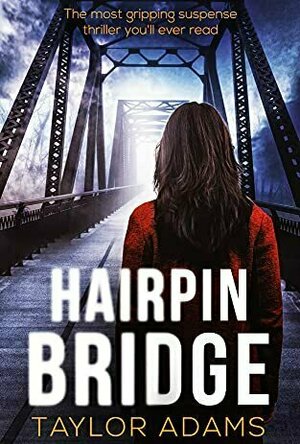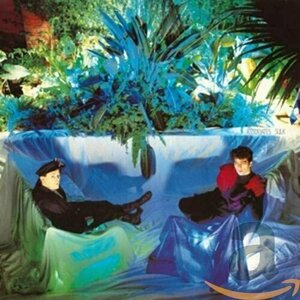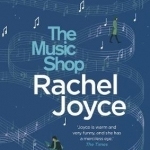Kristy H (1252 KP) rated Hairpin Bridge in Books
Jun 17, 2021
"I have to know. What happened to you, Cambry?"
I actually read Adams' NO EXIT not that long ago and that book totally stressed me out. This one did the same, though thankfully a kid wasn't full and center. Goodness, he excels at writing at tense, action-packed books. This thriller certainly keeps you guessing--I was never exactly sure what was real or what was truly happening or had happened.
HAIRPIN BRIDGE, crazily enough, mostly takes place on a bridge (who knew?), but it alternates between the past and present. It's told in snippets, with Lena and Raycevic's perspectives in the here and now, and then pieces of Lena's blog, as well as what seems to be Cambry's past flashbacks, but could be Lena's own interpretation of what happened. This part was the hardest for me, as that was incredibly confusing. The idea is to keep you off-balance and prevent you from knowing what was really happening, but sometimes I felt a bit too confused.
This thriller feels more like a movie than a book at times, with its dramatic tension and constant "what on earth can happen next" feel. Lena comes across like an action hero in moments, and I often wondered what else Adams could throw at us. (Oh, he could come up with more insanity, don't worry.) The result is a book that's dark, action-packed, and sometimes completely horrifying. It's incredibly dramatic, but wow, does it keep you turning the pages. I know I finished this one in less than 24 hours. I absolutely had to find out what happened to Cambry, Lena, and Raycevic.
As I felt with NO EXIT, I'm not sure I really enjoyed this book. It's more that I survived it. I admire its structure, and it's great having a page-turner to fly through. I would have liked being a little less confused, but there were some great, terrifying twists here. If you don't mind a graphic and dark thriller, I recommend this one. 3.75/4 stars.
Shirley Manson recommended Sulk by The Associates in Music (curated)

Playing to the Edge: American Intelligence in the Age of Terror
Book
An unprecedented high-level master narrative of America's intelligence wars, demonstrating in a time...
Politics security conflict

Holiday Destination by Nadine Shah
Album Watch
For most of us, 2016 was a tumultuous and ugly year - one steeped in political chaos and an air of...
rock pop

Cricket Coach Plus
Sports and Education
App
VIDEO ANALYSIS FOR CRICKET - ANYONE ANYWHERE ANYTIME RECORD | COMPARE | IMPROVE your Cricket skills...

Tennis Coach Plus HD
Sports and Education
App
Video Analysis for Tennis - Anyone Anywhere Anytime RECORD | COMPARE | IMPROVE your tennis shots ...

Football Coach Plus HD
Sports and Education
App
Video Analysis for Football - Anyone Anywhere Anytime RECORD | COMPARE | IMPROVE your Football...

Word Master Pro - Practical scrabble-like game
Games
App
Advantages of the Pro version: **Ad-Free Experience** **7 additional board layouts** **Randomize the...
Hazel (1853 KP) rated The Music Shop in Books
Aug 22, 2017
From the author of The Unlikely Pilgrimage of Harold Fry comes a unique and beautiful story about music and learning how to listen. The Music Shop by Rachel Joyce takes readers on a journey through the developing music world of the late 1980s when CDs are beginning to wipe out all other means of recording music – a complete disaster for someone like Frank, the owner of the music shop, who only sells vinyl.
The book begins in 1988 in a crumbling down street where shopkeepers are barely making enough money to survive. Frank’s shop is one of the few remaining and, despite everything against him, is determined to keep going. Not only does he sell vinyl records, Frank has an empathetic gift allowing him to sense exactly what a customer needs to listen to, even though they may not realise it themselves. However, one day, Frank’s world is turned upside down by the arrival of a young German woman, Ilse Brauchmann, who faints on his doorstep.
Ilse intrigues all of the shopkeepers on Unity Street, particularly Frank’s teenaged assistant, Kit. Although Frank tries to deny it, Ilse also fascinates him to the point that he is rarely thinking of anything else. But what concerns him most is that he cannot pinpoint what piece of music she ought to listen to. When questioned, Ilse admits she knows nothing about music and begs Frank to give her lessons. These lessons have nothing to do with instruments – Frank is the least qualified to teach such a thing – but about how to listen to music. How to hear the pauses in classical pieces; understand the meaning behind Beethoven’s sonatas; feel the passion behind punk music; learn to love a number of composers for the things many people miss.
The longer Frank spends around Ilse, the more he begins to fall in love. However, love is something Frank denies himself ever since the death of his mother fifteen years previously. Written in italics are flashback chapters explaining how Frank’s love of music came about, his relationship with his mother, and how he ended up as a dead-end vinyl seller. Due to his fear of intimate relationships, Frank keeps pushing Ilse away until, one day, he realises how much he needs her. But, he may have left it too late.
The Music Shop is split into four sections, or sides (a reference to vinyl records). Side A introduces the characters and settings during a wintery January when Frank is beginning to struggle with the competition caused by the recently opened Woolworths on the nearby high street. Sides B and C focus on the development of Frank and Ilse’s friendship, the secrets they hide from each other and the foreboding sense of disaster hanging over the one-of-a-kind music shop.
As Frank begins to realise how much Ilse means to him, the sudden appearance of side D will break readers’ hearts. Whilst sides A, B and C take place in 1988, side D jumps forward 21 years to 2009. It appears Frank and Ilse never got the relationship they deserved. Two unhappy decades have been and gone, demolishing any resemblance of the way life used to be. However, because there is a side D, readers can only hope it will result in a happy ending.
The Music Shop is a love story between two quiet, modest characters whose past and present circumstances get in the way of a peaceful future. However, it is not only a piece of romantic fiction. Rachel Joyce writes a message in story format about second chances and being brave. Learning to listen does not only apply to music, it applies to hearing what other people are saying and what they are not; most importantly, the book urges people to listen to themselves.
The research undertaken for this novel is phenomenal. For starters, it is set almost thirty years ago when vinyl was only beginning to go out of fashion. The quality of music and the access people had to it was extremely different to the simplicity of today where it is possible to download everything at the press of a button. The breadth of music genre is as wide as possible. Every type of music is covered from Handel’s Messiah to Aretha Franklin and The Sex Pistols. To be able to discuss such a range without falling into stereotypes is a feat worthy of congratulating.
The Music Shop far surpasses anything Rachel Joyce has written so far. The story is fragile in a beautiful way, its delicacy causing the reader to treat it with care, rather than rush through it like some mundane piece of fiction. It will interest a whole host of readers: male and female, music lovers and those with a preference for silence. Whoever you are, be prepared to take something away from this distinctive, outstanding novel.



